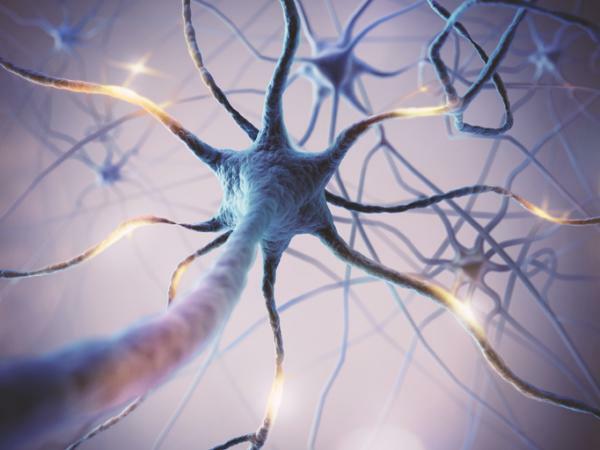
Fear is an adaptive emotion that has a key function: to protect us. Therefore, it is logical that fear is activated in the face of diseases to help us and avoid them and, thus, survive. However, sometimes the fear begins to be dysfunctional, that is, it is so strong that instead of help us survive, paralyzes us and creates a discomfort that prevents us from continuing with our life with normal.
Fear of disease can interfere with people's lives, to the point of avoiding many situations and having a really bad time. Therefore, from Psychology-Online we want to explain how to overcome fear of disease with effective psychological techniques and guidelines.
Index
- What is the fear of disease called: name
- Symptoms of fear of disease
- Why am I so afraid of diseases: causes
- How to face your fears
- How to overcome the fear of disease
What is the fear of disease called: name.
The fear of disease, also known as hypochondria or currently called by the Manual of Statistical Diagnosis of Mental Disorders DSM 5 as
Symptoms of fear of diseases.
Below we share what the symptoms present in the fear of diseases may be:
- Excessive worry and constant due to suffering or contracting a serious illness.
- Elevated anxiety related to health, the person is very easily alarmed by the state of her health.
- There may be no symptoms of illness or, if they are, they are only mild.
- If there are high risks of having the dreaded medical condition (for example, family history), the concern is disproportionate or excessive).
- Worry takes up a lot of time: they focus their habits, conversations and other time available to attend to your concern.
- Excessive behaviors towards your health (for example, repeatedly checking your body for signs of illness, frequent visits to health and medical services, or undergoing procedures or tests doctors). Although it can also present avoidance due to maladaptation (for example, avoiding visits to the doctor or available health services).
- They are easily alarmed with illness, hearing that someone has become ill, or reading news about health-related stories.
- Despite the tests being negative and the doctor's attempts to reassure you, the fear does not go away and it does not provide any kind of relief.
- The disease becomes a central element of the identity of the person, is a frequent theme in their social discourses, and a characteristic response to stimuli or stressful events.
- They over research about their fear or suspicion of the disease (for example, the most frequent resource is the Internet), or they seek comfort with family, friends or doctors.
- This fear can become frustrating for others and as a consequence cause tension in the family.
- Avoidance behavior Maladaptive can lead to not visiting sick family members or friends, not doing exercises due to the risks involved in doing them ...
Why I am so afraid of diseases: causes.
It is necessary to understand that fear is a normal emotional response to an imminent threat, whether real or imagined. Anxiety is an anticipatory response to a future threat. Fear cannot be considered as a pathology or abnormality in behavior; but it must be evaluated as such if it harms people's quality of life. Next we will see the causes of the development of fear of diseases:
1. Learning
The excessive and constant fear of any type of stimulus is often learned and specifically the fear of diseases can arise in contexts with little or no emotional regulation capacity. The primary support network contributes through behavioral reinforcement mechanisms most of the structure of the mental schemas with which we cope (for example, parents with very low emotional intelligence cancel out the importance of affective expression inside and outside the home; parents who face with excessive emotional burdens to the events of the life either of frustration or success).
2. biology
Second, the genetic load contributes to the formation of our neural systems, which implies that all the areas involved in the response to danger, that is, the brain amygdala, adrenal gland and HHA axis, are over activated and thus natural physical symptoms are produced in the response to fear, which are what confuse people with their symptom.
3. Social context
Third, the social context in which the person develops, which attributes importance to a certain information and avoids other as not very fundamental (for example, the dissemination of information that can create anxiety in the population).
How to face fears.
To deal with fear, we can start with these two basic guidelines:
1. Normalize
The first thing is to recognize that fear is a normal response in all human beings, since it is an emotion that allows us to survive by prompting us to distance ourselves or to fight with everything. what represents a threat (for example, if there is an obvious catastrophe such as a possible fire or flood, it is time to be alert and look for the means to take action except).
2. Regulate emotions
Being aware of our emotions and their responses to some degree subjective will help us to identify the stimuli of each one of them (as we each live fear “we move away or try to have control of each detail"). Although when we are afraid we try to exercise control although we are not aware that this ends up making things worse.
How to overcome the fear of diseases.
Can you live without fear of disease? The truth is that you cannot live without fear because it is a basic and primary emotion, however, you can learn to manage fear and you can live without excessive fear of disease. To lose the fear of disease and stop having a paralyzing fear disease, the following guidelines can be put into practice:
1. Identify what triggers the fear
Register what is the stimulus of our fear (in this case, the disease) and then explore where our fear comes from. information about the stimulus (information about the disease «causes, probability of suffering or contracting it, possible treatments and symptom").
2. Rationalize
Verify the veracity of that information or thought. Question and seek evidence of reality to determine whether the thought or information may be true or not.
3. Share
Talking about what is feared, explaining and sharing with loved ones helps to accept and cope. Expressing verbally while expressing the emotion will allow others to empathize with it and support us.
4. Feel the emotions
Allowing yourself to live the cognitive, affective and physical experience will give way to confrontation. For this process it is appropriate to consult and be accompanied by professionals or people who can be of support. Allowing yourself to feel the fear of disease is not equivalent to succumbing to it, but rather experiencing it to give a beginning, an end and an end to the experience.
In the following article you will find more information about how to overcome fears.
This article is merely informative, in Psychology-Online we do not have the power to make a diagnosis or recommend a treatment. We invite you to go to a psychologist to treat your particular case.
If you want to read more articles similar to How to overcome the fear of illness, we recommend that you enter our category of Clinical psychology.
Bibliography
- American Psychiatric Association. (2013). Diagnostic and Statistical Manual of Mental Disorders (DSM 5). Editorial Panamericana.
- Bonet, J. I. C. (2001). Effective psychological treatments for specific phobias. Psicothema, 13 (3), 447-452.


